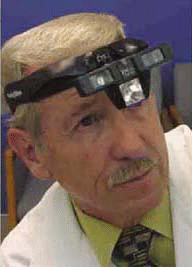Coding is done by the physician. At the end of each day, one of the billing staff double-checks the code for correct use of modifiers and code combinations, and a system called RealMed is used to verify the demographics within the claim before the electronic billing system sends it to the insurance carrier.
Explore This Issue
September 2006RealMed is a service that gives you real-time information from the insurance carriers that participate in it, Dr. Dillon explained. When you input the patient information, such as name, address, group number, etc., the service tells you within minutes if the information matches what is on file with the patient’s insurance company. Most of the insurance problems are not so much coding as demographics.
When payment and the explanation of benefits (EOB) are received from the carrier, the physicians’ electronic system automatically posts it into the office database and the patient’s account.
Other Tips for Combating Denials
Dr. Dillon’s group also uses the electronic system to monitor claim denials. We have adopted a policy called Zero Tolerance for Wrong Payment. We set our billing system to look for patterns of denial or underpayment. The reasons may be due to changes in carrier policy, substitution of another fee schedule, failure of insurance company employees to follow payment guidelines, and computer glitches where payment is somehow turned off. Sometimes it’s as easy as calling the carrier to get the payment button switched on again.
Unfortunately, some insurance companies do whatever they can to delay or deny payment. If there’s one typo, they might wait a month before sending it back for correction. It has to be a clean claim and electronic billing systems with scrubbers can do this. – -Roger Crumley, MD, MBA
Dr. Eisenberg, who teaches a course called Overcoming Payment Denials, offers additional suggestions. If both spouses have health coverage, you have to find out who the primary is and submit first to that company. If you find an insurance company denies payment when more than one procedure is listed, go after those denials. Look at your EOBs and check the contracted rates. We do that all the time. Many times you’ll get paid.
And then there’s the newest technique on the electronic block-instant adjudication. According to Dr. Dillon, we plan to implement a system where a patient office visit is immediately coded and sent to the carrier while the patient is being seen. The carrier will tell us how much they’ll pay, and we’ll be able to collect the remainder from the patient as he or she leaves the office.
Cash-Only Medicine
If the hassle with insurance companies becomes too painful, an otolaryngologist can always consider a cash-only business where patients pay the total bill for services rendered as they leave the doctor’s office. (See Getting out of the Insurance Game in the June issue of ENToday for more on cash-only practices.)

Leave a Reply